- Recommend breakthrough solutions in science and technology, innovation, and digital transformation
|
Accordingly, Associate Professor Dr. Vu Hai Quan pointed out many aspects of the problem, along with practical solutions for Ca Mau to make a breakthrough in implementing the policy. Specifically, the province needs to have a large investment in science and technology, especially investment in R&D (those who undertake research and development activities in the production process) reaching 2% of GDP, in which funding from the private sector accounts for over 60%. At the same time, it is necessary to accept risks in scientific research, unleash creativity and create conditions for scientists to boldly experiment.
And especially, it is necessary to grant autonomy in using research funds, eliminate cumbersome administrative procedures, and encourage real creativity. Enterprises are considered the center of the innovation ecosystem, playing a key role in applying and commercializing scientific research results. Research organizations will play an important role in creating new knowledge, developing technology and training high-quality human resources.
However, the challenges in implementation are not small. Associate Professor, Dr. Vu Hai Quan said that enterprises lack confidence in the feasibility of science and technology initiatives and innovation, making it difficult to mobilize more than 60% of R&D funding from the private sector. Scientists and research centers have not been empowered and facilitated to test new initiatives. Risk acceptance in research has not been effectively implemented. On the contrary, leaders of ministries, branches and localities still do not really believe in the ability of scientists and enterprises to create growth momentum through innovation and national digital transformation.
In addition, the lack of staff with expertise in science and technology in the leadership team and inadequate human resources are also major barriers. Obviously, the rate of senior leaders in Party committees and State management agencies with specialized training in science, technology and innovation is still low. There is a lack of leaders with in-depth and comprehensive knowledge to build and plan policies for the development of science, technology and innovation. Human resources for science, technology and innovation in localities are facing many difficulties.
"In addition, scientific management is still based on approval and supervision mechanisms, instead of giving autonomy to scientists and research centers. Complicated administrative procedures in project approval, budget settlement and equipment procurement cause initiatives to be prolonged and slow. There is no risk incentive mechanism, so scientists are still responsible if the project fails, making the safety mentality popular, limiting breakthrough experiments," Associate Professor, Dr. Vu Hai Quan analyzed.
It must be recognized that many localities are confused in developing plans and implementing policies to support innovation, especially in the field of digital transformation. Some localities still depend on the direction from the Central Government, lacking initiative in building mechanisms to encourage and support innovative enterprises. "Many innovation initiatives are stuck at the implementation level, reducing the effectiveness of R&D and digital transformation programs," Associate Professor, Dr. Vu Hai Quan stated the reality.

The staff of the Department of Science and Technology of the province constantly researches, innovates, and implements many science and technology projects.
Associate Professor, Dr. Vu Hai Quan recommended that the Provincial Steering Committee should coordinate with universities, research institutes, and local leaders to identify strategic products of the locality. On that basis, it will invest in strategic science and technology to upgrade the value chain for strategic products in the direction that enterprises will accompany local authorities. In which, the State applies the 40/60 rule, the State will spend 40% of the budget to support research, enterprises will spend 60% of the budget to find ways to increase the value of strategic products. Accordingly, strategic products and strategic technology must have an organic relationship. From there, the State, enterprises and universities will create a three-legged tripod to research and improve products together. This will help enterprises share risks and actively participate in R&D.
In addition, the province needs to have policies to encourage enterprises to invest in science and technology, innovation and commercialization of research results, such as: establishing a provincial innovation fund to co-fund R&D projects; mobilizing from the local budget and contributions from enterprises for applied research projects, sharing risks, and encouraging enterprises to order research from institutes/universities. The province needs to supplement the list of priority industries with specific tax incentives suitable for enterprises investing in R&D activities and technological innovation. Developing the startup and innovation space of the province.
In particular, the province needs to have a policy to attract and develop high-quality human resources. In particular, there needs to be a policy to retrain the team, first of all the team of leaders, civil servants and public employees of the locality, to improve capacity, innovative thinking, approach to technology, innovation and digital transformation. At the same time, there should be a policy to attract capable students to work in the province, by mobilizing enterprises or through the People's Council to establish a fund to support students with study loans and commitment to return to work in the locality. This is also a way to have real talents to contribute to the locality.
“Science, technology, innovation and digital transformation cannot be done without people. Similar to the policy issue, no matter how good the policy is, if the people are not up to the task, the policy will not be implemented well; on the contrary, even though the policy may not be perfect, if there are people of sufficient caliber, policy barriers will be overcome step by step, creating changes,” Associate Professor, Dr. Vu Hai Quan emphasized.
Hong Nhung
Source: https://baocamau.vn/tu-nghi-khac-den-lam-khac-a38751.html


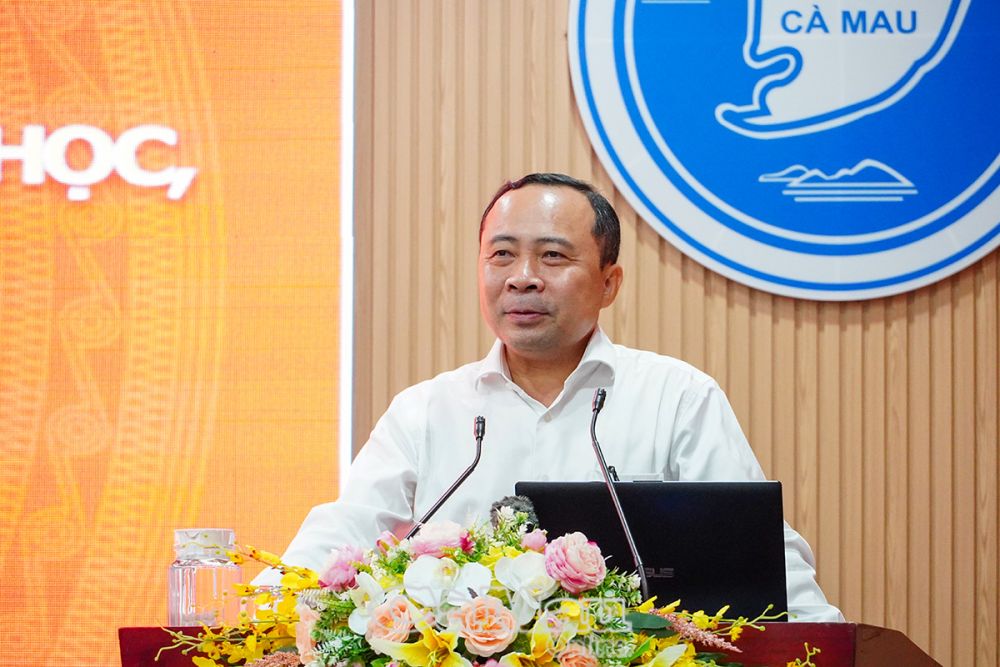 Associate Professor, Dr. Vu Hai Quan recommended that the province should have a policy to attract and develop high-quality human resources. In particular, there should be a policy to retrain the team, first of all the local leaders, civil servants and public employees, to improve capacity, innovative thinking, technology approach, innovation and digital transformation.
Associate Professor, Dr. Vu Hai Quan recommended that the province should have a policy to attract and develop high-quality human resources. In particular, there should be a policy to retrain the team, first of all the local leaders, civil servants and public employees, to improve capacity, innovative thinking, technology approach, innovation and digital transformation.![[Photo] Bus station begins to get crowded welcoming people returning to the capital after 5 days of holiday](https://vphoto.vietnam.vn/thumb/1200x675/vietnam/resource/IMAGE/2025/5/4/c3b37b336a0a450a983a0b09188c2fe6)



![[Photo] Vietnam shines at Paris International Fair 2025 with cultural and culinary colors](https://vphoto.vietnam.vn/thumb/1200x675/vietnam/resource/IMAGE/2025/5/4/74b16c2a197a42eb97597414009d4eb8)
![[Photo] General Secretary To Lam receives Sri Lankan President Anura Kumara Dissanayaka](https://vphoto.vietnam.vn/thumb/1200x675/vietnam/resource/IMAGE/2025/5/4/75feee4ea0c14825819a8b7ad25518d8)


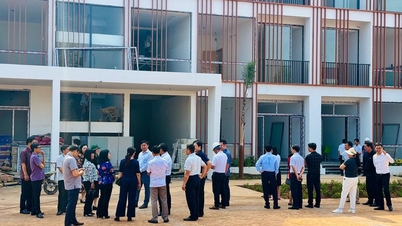

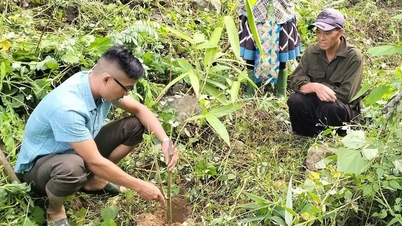





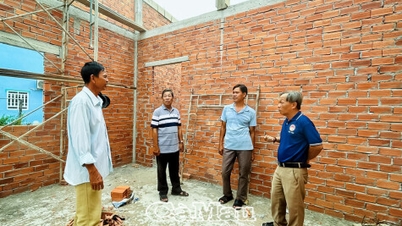









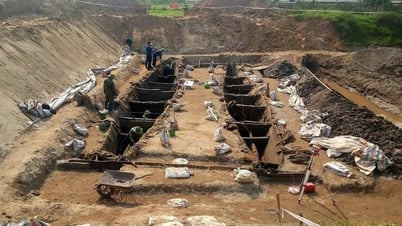






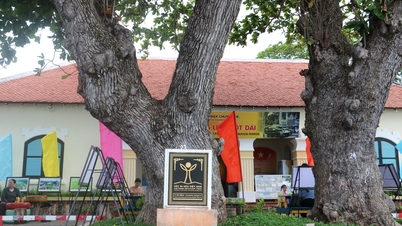



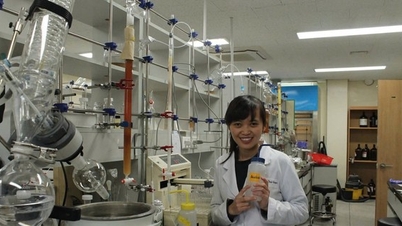


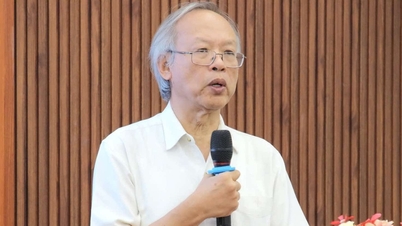

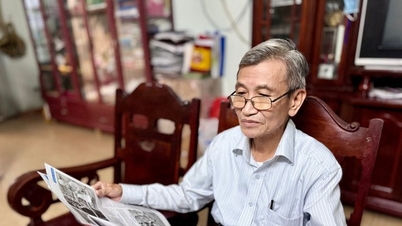


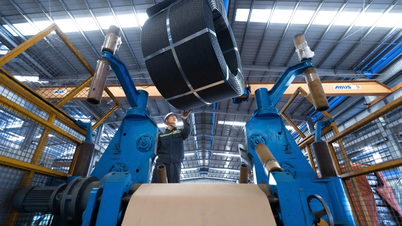



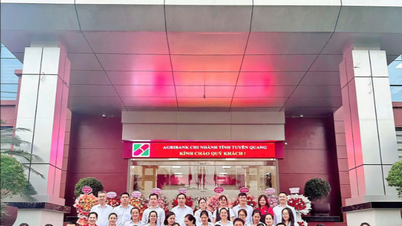





















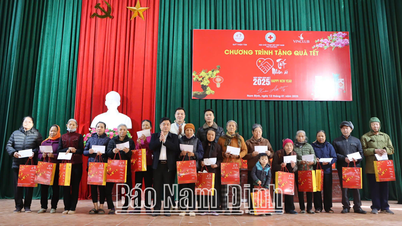










![[Video]. Building OCOP products based on local strengths](https://vphoto.vietnam.vn/thumb/402x226/vietnam/resource/IMAGE/2025/5/3/61677e8b3a364110b271e7b15ed91b3f)




Comment (0)